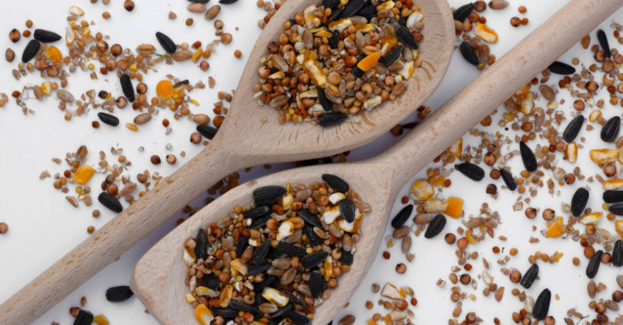Keeping a healthy and productive poultry flock begins with providing them with the right nutrition. The cornerstone of poultry health and productivity lies in the quality of their diet. In this comprehensive guide, we’ll explore the world of poultry food, also known as poultry feed, delving into the essential components, types of feed, and the crucial role nutrition plays in ensuring the well-being of your feathered companions.
Table of Contents
Understanding Poultry Food: The Heart of Flock Nutrition
Poultry Feed: The Basics:
Poultry food, commonly referred to as poultry feed, is a specialised mix of nutrients designed to meet the unique dietary requirements of chickens, ducks, turkeys, and other domesticated birds. The formulation of poultry feed takes into account the specific needs of each life stage, ensuring optimal growth, egg production, and overall health.
Key Components of Poultry Feed:
- Proteins: Proteins are the building blocks of life and play a critical role in poultry growth, feather development, and egg production. Poultry feed is formulated with protein sources such as soybean meal, fish meal, and grains to provide the vital amino acids required for optimal health.
- Carbohydrates: Carbohydrates are a primary energy source for poultry. Grains like corn, wheat, and barley are common components of poultry feed, providing the energy needed for daily activities, egg production, and heat generation in colder climates.
- Fats: Fats are essential for energy storage and the absorption of fat-soluble vitamins. Including fats from sources like vegetable oils in poultry feed helps maintain healthy skin, feathers, and overall energy balance.
- Vitamins and Minerals: Poultry requires a range of vitamins and minerals for various physiological functions, including bone development, eggshell formation, and overall immune system support. Poultry feed is fortified with vitamins such as A, D, and E and minerals like calcium and phosphorus to ensure a well-rounded diet.
Types of Poultry Feed: Tailoring Nutrition to Specific Needs
Starter Feed:
Designed for newly hatched chicks, starter feed is high in protein to support rapid growth and feather development. It typically contains finely ground grains and is fortified with essential vitamins and minerals to provide a solid nutritional foundation during the crucial early stages of life.
Grower Feed:
As poultry mature, their nutritional needs change. Grower feed is formulated for birds between the ages of 6 to 20 weeks, providing a balanced diet to support steady growth without excessive weight gain. This feed helps prepare birds for the laying stage.
Layer Feed:
Layer feed is specially designed for hens during the egg-laying phase. It contains higher levels of calcium to support strong eggshells and is balanced with essential nutrients to ensure optimal egg production. Layer feed is typically introduced around 20 weeks of age.
Broiler Feed:
For birds raised for meat production, broiler feed is formulated to promote efficient growth and muscle development. It consists of a higher percentage of protein and energy to support the rapid weight gain characteristic of broilers.
Ensuring Poultry Food Quality:
- Source Quality: Choose poultry feed from reputable suppliers to ensure the quality and consistency of ingredients. Verify that the feed meets regulatory standards and is free from contaminants.
- Storage Conditions: Proper storage is necessary to maintain the nutritional value of poultry feed. Store feed in cool, dry conditions to prevent mould growth and nutrient degradation. Use airtight containers to protect feed from pests.
- Regular Testing: Periodic testing of poultry feed can provide valuable insights into its nutritional content. Work with feed experts or laboratories to analyse samples for protein, energy, and other essential nutrients.
- Freshness: Purchase poultry feed in quantities that can be used within a reasonable timeframe to ensure freshness. Check the expiration or manufacturing date on feed bags and rotate stock accordingly.
Conclusion:
In the intricate world of poultry keeping, the importance of quality poultry food cannot be overstated. Understanding the basics of poultry, including its essential components and types, empowers food poultry keepers to make informed decisions about their flock’s nutrition. Tailoring feed to specific life stages ensures that each bird gets the nutrients it needs for optimal growth and well-being.

